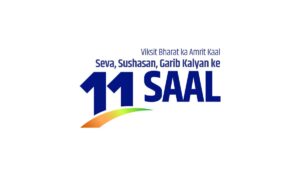GS 2 – Schemes

Context
AMRUT marks a decade since its launch in June 2015, having significantly influenced India’s urban development agenda.
Phase 1 Overview:
- Covered 500 cities, touching around 60% of the urban population.
- Centrally Sponsored Scheme under Ministry of Housing and Urban Affairs (MoHUA).
- State Annual Action Plans (SAAPs) were approved annually for funding.
- Urban Local Bodies (ULBs) implemented projects under State and MoHUA oversight.
Core Objectives:
- Universal water and sewerage access.
- Enhanced urban green spaces.
- Pollution reduction through non-motorised and public transport.
Key Components:
- Water & Sewerage: Pipeline networks, water meters, treatment systems.
- Stormwater Drainage: Infrastructure to prevent urban flooding.
- Non-Motorised Transit: Cycle tracks, walkways.
- Green Zones: Parks and open public spaces.
- Institutional Reforms: Capacity building (CCBP) and real-time systems via SCADA.
AMRUT 2.0 (2021–2026):
- Extended to 4,900 statutory towns, covering ~10.5 crore people.
- Introduction of City Water Balance Plans (CWBP) for water reuse, waterbody rejuvenation, and groundwater recharge.
Objectives:
- Achieve universal water supply and sewerage coverage.
- Promote water circularity and climate-resilient cities.
- Integrate digital governance tools.
New Features:
- Pey Jal Survekshan: Ranks cities on water usage and equity.
- Tech Sub-Mission: Encourages SCADA, smart meters, and innovation.
- Jal Hi AMRIT: Promotes wastewater reuse through efficient STP operations.
- Reforms: Emphasis on digitised permits, non-revenue water reduction, and municipal accounting.
- Digital Tools: Dashboards, GIS mapping, and real-time monitoring.
Achievements:
- Water Access: 2.03 crore household tap connections.
- Sewer Access: 1.5 crore households connected.
- Infrastructure:
- 10,647 MLD Water Treatment Plant capacity sanctioned.
- 6,739 MLD Sewage Treatment Plant capacity approved.
- 3,576 water bodies rejuvenated (~1.19 lakh acres).
- Efficiency Gains:
- 99 lakh LED streetlights installed (saving 666 crore kWh).
- CO₂ emissions cut by 46 lakh tonnes.
- ₹4,984 crore raised via municipal bonds.
- ~120 start-ups supported in 80 cities.




